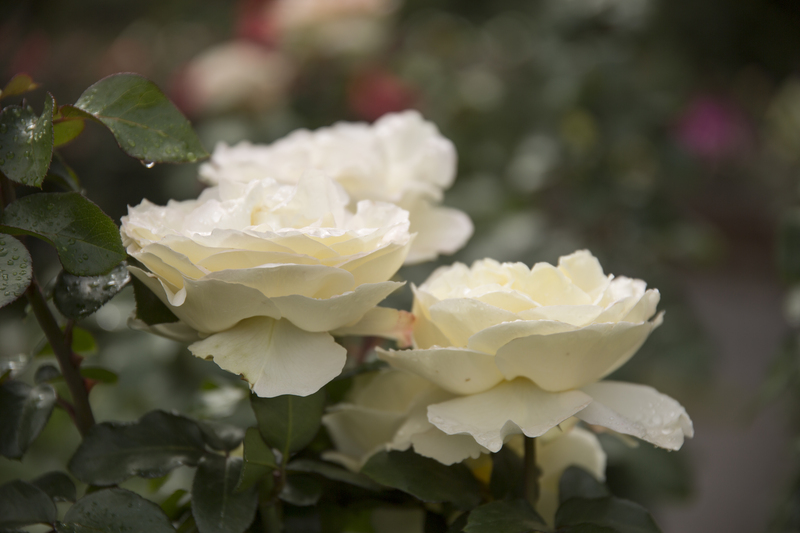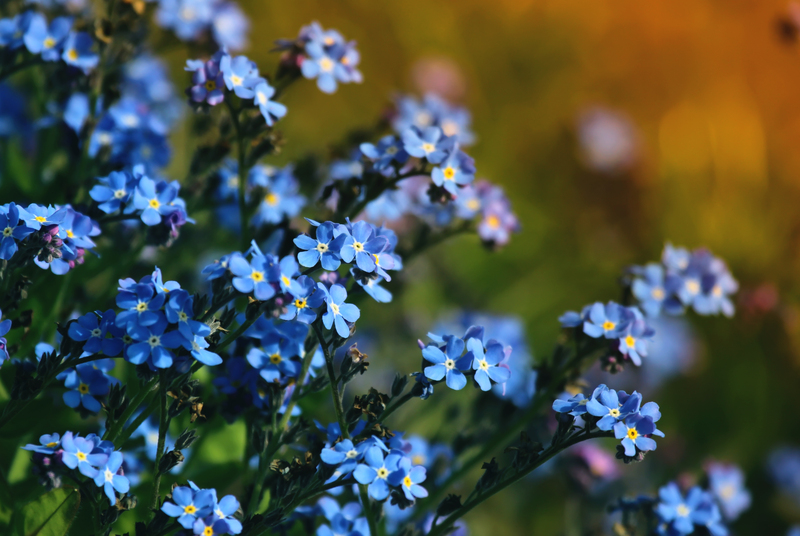Get Your Hands Dirty: 9 Insider Tips for Gardening Newcomers
Posted on 22/08/2025
Get Your Hands Dirty: 9 Insider Tips for Gardening Newcomers
Are you dreaming of a vibrant garden but unsure where to start? Gardening can be a rewarding journey for anyone, and with a few expert tips, every newcomer can set themselves up for blooming success! In this in-depth guide, explore 9 actionable secrets for first-time gardeners. Let's dig into the essentials for beginner gardeners seeking to transform their outdoor spaces into lush, thriving oases.
Why Start Gardening? The Benefits Await!
Gardening offers benefits for both body and mind. From producing fresh vegetables to fostering tranquility and improving your home's curb appeal, the joys of tending to your plants expand far beyond beautiful blooms. With the right foundation, gardening for beginners is both fun and fulfilling. But where should you begin, and how do you avoid rookie mistakes?

1. Start Small--Embrace Your Learning Curve
Overwhelmed by gardening projects? Many gardening newcomers try to tackle too much, too soon. Instead, start with manageable garden beds or containers. Focus on a limited selection of plants so you can learn the basics without becoming discouraged or overworked.
- Begin with one or two raised beds, or a collection of pots on your patio.
- Choose easy, low-maintenance plants like herbs (basil, chives), lettuce, or marigolds.
- Expand your garden as your confidence grows!
2. Location, Location, Location: Know Your Garden's Light
Plants thrive in the right environment. Assess your garden's sunlight patterns before planting. Some flowers and veggies need full sun, while others prefer partial shade.
- Observe sunlight in your yard throughout the day: does a spot get morning sun, afternoon rays, or is it shaded?
- Most vegetables and many flowers require at least six hours of sunlight per day.
- Use this info to match plants with the environment best suited for their growth.
Pro tip: Mark out sun and shade zones with stakes or string before planning your garden layout.
3. Soil Matters: Build Healthy Ground for Growing
The secret to vibrant gardens is always in the soil! Most gardening errors stem from neglecting the importance of healthy, nutrient-rich soil.
- Test your soil's pH and nutrients using a soil test kit from your local garden center.
- Add compost or other organic matter to improve soil fertility and structure.
- Loose, well-draining soil helps roots grow and prevents plant diseases.
Good soil is one of the best investments for any novice gardener. Healthy plants start from the ground up!
4. Choose the Right Plants for Your Region
One common mistake for many first-time gardeners is trying to grow plants unsuited for their climate and season.
- Research your USDA Hardiness Zone (or your country's equivalent) to understand what thrives in your area.
- Start with regionally-adapted or indigenous plants--they're typically easier to care for, and more resistant to local pests.
- Visit local nurseries for advice on what grows best in your zip code.
Learning about native species is one of the top gardening tips for beginners--you'll enjoy better results with less trouble!
5. Water Wisely--It's All About Consistency
When it comes to watering your garden, both overwatering and underwatering are common hazards. New gardeners often get the balance wrong, risking stressed or drowned plants.
- Most gardens benefit from a deep soak once or twice per week rather than daily light watering.
- Water directly at the base of the plants to prevent fungal diseases.
- Morning is the best time to water, reducing loss to evaporation.
- Mulch your beds to retain moisture and keep roots cool.
Pro insight: Use your finger--poke it an inch into the soil. If it's dry, it's time to water!
6. Feed for Success: Essentials of Plant Nutrition
Like people, plants need the right nutrients to grow strong and healthy. Understanding fertilizer basics saves new gardeners from costly mistakes.
- Start with compost for a gentle, organic nutrient boost.
- Follow packaging instructions for fertilizers--too much can burn your plants.
- Different plants have different needs. Leafy greens love nitrogen, while fruiting plants benefit from phosphorus and potassium.
Don't be afraid to ask advice from your local garden shop on what and when to feed your garden. This will become second nature as you gain more gardening experience.
7. Give Space to Grow & Prune with Purpose
Plants may look small as seedlings, but most will need space to reach their full potential! Overcrowding is a classic beginner mistake.
- Follow the recommended spacing suggestions on seed packets or plant tags.
- Thinning seedlings encourages strong, healthy growth and prevents disease.
- Prune regularly to shape plants, remove dead material, and boost air flow.
Proper spacing not only helps plants flourish but makes tending your garden easier, too.
8. Keep Pests & Problems Under Control, Naturally
Every garden is eventually visited by bugs, fungi, or other challenges. The key is to manage these issues early and avoid harsh chemicals whenever possible.
- Inspect your plants regularly for signs of pests or disease.
- Hand-pick obvious pests or use barriers like row covers for vulnerable veggies.
- Encourage beneficial insects such as ladybugs and lacewings.
- Try natural remedies (like neem oil or insecticidal soap) for gentle intervention.
Remember: Healthy, unstressed plants are naturally more resistant to most problems!
9. Patience Pays Off: Celebrate Small Successes and Learn from Mistakes
Gardening isn't instant gratification--it's a journey! Every gardener, novice or veteran, faces setbacks. Some seeds won't sprout, weather may turn, or bugs could munch your leaves. That's normal. Celebrate your progress, learn from your mistakes, and don't give up.
- Keep a garden diary or take pictures of your progress for reference and encouragement.
- Ask for advice in local gardening groups or online forums. Gardeners love to help newcomers!
- Remember that every failed plant teaches you something new for next year.
Most importantly, take time to enjoy your garden--smell the flowers, savor the vegetables, and appreciate the wonders of growing things with your own hands.
Frequently Asked Questions for Gardening Newcomers
What are the easiest plants for beginners?
- Herbs: Basil, mint, chives, and parsley are very forgiving and can be grown in pots.
- Leafy greens: Lettuce, spinach, and arugula grow quickly and require little care.
- Marigolds and sunflowers: Cheerful flowers that thrive in many conditions and attract pollinators.
How often should I water my new garden?
Typically, once or twice per week with a deep soak is best. Make sure the top inch of soil is dry before the next watering. Over-watering is a common issue for gardening beginners.
How can I improve heavy clay or sandy soil?
- Add plenty of organic matter like compost or well-rotted manure.
- Mulch regularly to help build soil structure over time.
- Raise garden beds if soil is persistently problematic.
What should I do if I have limited space?
- Try container gardening on patios, balconies, or windowsills.
- Grow vertically with trellises or hanging baskets.
- Focus on high-yield crops such as herbs and salad greens.
Are organic gardening practices important for beginners?
Absolutely! Organic gardening minimizes chemicals, supports pollinators, and is friendlier for the environment. Start with compost, natural pest controls, and healthy soil to lay the groundwork for a sustainable garden.

Conclusion: Embrace the Joy of Gardening
Every aspiring gardener can cultivate a green thumb by following these 9 expert tips. Whether you're growing tomatoes on your balcony or planning a full backyard makeover, the basics remain the same: start small, nurture your soil, pick the right plants, water consistently, and celebrate the beauty of growth. Don't fear mistakes--they're simply stepping stones on your journey to gardening success.
So, gather your seeds, grab your gloves, and get your hands dirty! Your vibrant, thriving garden awaits, one step and one season at a time.
Related Articles You Might Enjoy:
- 10 Best Vegetables for Urban Gardening
- Composting 101: Turn Kitchen Scraps into Garden Gold
- How to Attract Pollinators to Your New Garden
Latest Posts
Mastering the Craft of Container Gardening
Eco-Friendly Gardening with Canine Companions
Advanced Techniques for Stunning Hedge Sculptures

